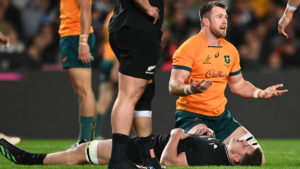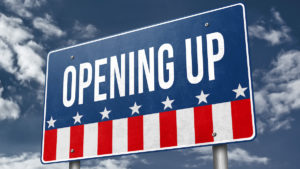Dr Boreham’s Crucible: It’s been a 10-year snooze but Rhinomed looks like it’s ready to jump out of bed

Did you know that the nasal anatomy of a four-year-old kid is very different to that of a 12-year-old – which is different again to that of a fully-fledged adult?
We didn’t – but now we nose.
For Rhinomed (ASX:RNO), this information is more than a fun fact: it guides the company’s move from a developer of nasal inserts to improve athletic performance to an industrial-scale provider of swab testing devices for rapid antigen tests (RATs).
Looking somewhat like a mini padlock when inserted around the septum, the so-called Rhinoswabs obviate the need for the infamously uncomfortable long-handled swabs inserted at the back of the nasal cavity.
The ‘brain stab’ is bad enough for adults, but according to Melbourne’s Royal Children’s Hospital, 80 per cent of parents of four-year-olds are reluctant to bring their kids in for Covid-19 tests because of the perceived discomfort.
About 30 per cent of the parents of 12-year-olds are similarly inclined, which is a pity because kids get colds twice as much as adults and could do with a quick ‘Covid or not Covid’ verdict.
“That’s a real issue from a public health perspective, you do want parents to bring kids forward for testing if they have Covid-19 or any other respiratory disease,” says Rhinomed chief executive Michael Johnson.
Rhinomed’s answer is Rhinoswab Junior, a modified version of the adult swabs.
“We know that testing children can be traumatic and difficult. This new test kit changes the paradigm and getting it into every Australian home is our priority.”
Merci beaucoup, Jean Leonard
The company’s ASX roots go back to 2013, when it morphed from the (now) unrelated Consegna Group (previously Helicon).
Approved in the US, Australia and Europe as a class-one device, Rhinoswabs are plastic clip-like, flock-lined objects. When gently inserted into the nose, they collect the requisite snotty material to enable a reliable RAT assay.
The devices evolved from the Turbine, Rhinomed’s original product which expands the nostrils to potentially provide more oxygen for enhanced athletic performance.
The company’s motto: “We’ll supply the air. You supply the guts.”
Sadly, a rigorous bicycle trial showed the Turbines were not effective.
The Mute – a low-cost treatment for snoring – followed next.
The company’s motto? “50 per cent of men snore. The other 50 per cent are liars.”
Derided by the ignorant as merely a bit of plastic, the Turbines deployed Poiseuille’s law, a rule of physics that determines flow rates based on factors such as viscosity, temperature, pressure gradient, length and diameter of the tubing.
So, the company owes a huge ‘merci’ to 19th century French psychist Jean Léonard Marie Poiseuille – who we suspect didn’t have as active a social life as he should have.
More than kid’s play
Ironically, little kids stick things up their nose all the time, as do some adults (insert Sydney or LA socialite quip here).
Johnson says the key to developing Rhinoswab Junior was to harness this natural tendency, but to make the process fun. For instance, the devices have moustaches, koalas and emojis attached to them.
“Clinically, what was really pleasing was it collected the equivalent of a combined nose and throat swab,” Johnson says.
The opening of the nose is an effective collection point, as it houses the highest amount of the receptors targeted by the virus.
“We capture as big a sample as possible because we are in the right area of the nose and because of the surface area and design of the swab,” Johnson says.
Big deal(s), really
Rhinomed’s commercial path has been underpinned by four big deals.
Last year, the New South Wales Department of Health ordered a minimum on one million Rhinoswabs, to be used for its lab-based polymerase chain reaction (PCR) tests, which were all the vogue at the time.
Unlike RAT tests, PCR tests can use a minute amount of sample materials.
Victoria’s health mandarins then followed suit, also for one million units.
In April this year Canada’s BTNX ordered a minimum 22.5 million Rhinoswabs over two years. “We hope they order a lot more than that,” Johnson says.
BTNX is Canada’s biggest rapid antigen test company and has performed about 390 million tests.
Then in July 2022, Surecreen Australia lobbed an order for 10 million tests over two years for its respiratory tests in Australia, New Zealand, Singapore and the South Pacific.
A significant but unquantified number are Rhinoswab Junior tests.
Surescreen is a subsidiary of the British based Surescreen Diagnostics.
Finances and performance
Rhinomed’s June quarter results showed revenue of $2.32 million, 134 per cent higher than the previous corresponding period. Full year revenue came in as $9.1 million as guided, a hearty 156 per cent increase on the previous year.
Johnson says demand for the Mutes “went gangbusters” during the pandemic, especially on the online Amazon platform. No doubt the incessant snores emanating from one’s spouse was all the more irritating during lockdowns.
The Mutes cost about $20 for a pack of three and unlike the Rhinoswabs they can be re-used – albeit judiciously.
But “the lion’s share of revenue in the next 36 to 48 months will certainly be driven by the diagnostic business”.
Despite the market being flooded with “dodgy cheap” swabs, the company has maintained pricing at the upper end.
In May this year, the company raised $4.9 million in rights offer at 19 cents apiece, including a $455,000 placement to mop up the retail shortfall.
Johnson says that with just over $2 million in the bank and a revenue surge to come, the company should not have to return with the begging bowl any time soon.
“Our target for the current year is that we will well-and-truly be cash-flow positive, with the ability not just to fund our existing programs but expand our diagnostic offerings.”
Naturally, the company is coy about pricing but Johnson points to a 70 per cent blended margin across all the products.
Over the last 12 months Rhinomed shares have traded as low as 10 cents (July 1 this year) and as high as 40 cents (August 11 last year).
Over time they’ve wavered between 69 cents (late 2013) and eight cents (mid 2020).
News from the factory floor
Now that it has its big boy’s pants on, Rhinomed will focus on scaling-up its manufacturing, currently based at a factory in the Melbourne suburb of Keysborough and supplemented by a Chinese supplier.
The recent Covid-related supply chain woes highlighted the importance of having facilities closer to the end market. For example, it took two weeks to get a shipment off a boat in New Jersey, which would fail even a Maritime Union of Australian performance metric.
Thus, the company is scouring for suitable sites in the US and Europe.
Johnson laments that a container journey that costs $1,200 a year fetched as much as $18,000 at one point – and remains elevated.
Air freight? Don’t even think about it …
The company also expects to spend a few bob on upgrading the Keysborough facility, which already contains a clean room and injection molding, flocking, 3D printing and drying facilities.
Making a difference
Johnson says BTNX and Surescreen were enthused about how Rhinomed’s swabs could differentiate its products.
“Prior to the pandemic, everyone saw testing as a homogenous blob,” he says.
“But Covid has shown there are vulnerable populations that need to be tested more often and kids get twice as many upper respiratory infections than adults.”
Rhinomed is now working with BTNX and Surescreen on a product for the aged care sector, which has a similar problem with reluctant subjects for the traditional swabs.
“We’ll see what we need to do to adapt our existing adult swab, but already it can be self-administered,” he says.
Johnson says that RATs are the future, not just for Covid but other upper respiratory diseases.
He notes that Surescreen’s British parent company is developing a range of combination lateral flow tests tests, such as for influenza and Covid but also monkeypox and respiratory syncytial virus (RSV).
Rhinomed is also looking at combining several lateral tests on the one swab.
Dr Boreham’s diagnosis:
Rhinomed’s vision is to provide a clearly different product when hundreds of RAT test providers compete on price alone.
Using the ‘Intel inside’ principle, other point-of-care diagnostic providers could differentiate themselves by promoting their products as using the Rhinomed swabs.
Johnson says it’s now clear that Covid will never be banished entirely.
With people now used to RATs, lateral flow tests will also become common for other upper respiratory disorders and allow for quicker diagnosis and treatment.
Despite Rhinomed’s languishing share price, the company remains unusually well backed by three large – but non-institutional – holders.
For the record, they are New York based fund manager W Whitney George, local IVF pioneer John McBain and finance executive Ron Dewhurst.
“They are fantastic long-term supporters,” Johnson says. “They understand what we are trying to achieve and it’s a longer-term play for them.”
Johnson describes Rhinomed as a “10-year overnight success story” that has been guided by the keep-it-simple approach.
“People get excited by overly complex technology, but our guiding principle is not to overcomplicate things,” he says.
“Medical devices also have to be designed for manufacture at scale and we are now very good at that.”
In the space of a decade, Johnson indeed has transitioned Rhinomed from purveyor of a modest nasal dilator to a meaningful player in respiratory diagnostics – and that’s snot bad at all.
Disclosure: Dr Boreham is not a qualified medical practitioner and does not possess a doctorate of any sort. He also never snores but may tell the odd fib.
UNLOCK INSIGHTS
Discover the untold stories of emerging ASX stocks.
Daily news and expert analysis, it's free to subscribe.
By proceeding, you confirm you understand that we handle personal information in accordance with our Privacy Policy.








